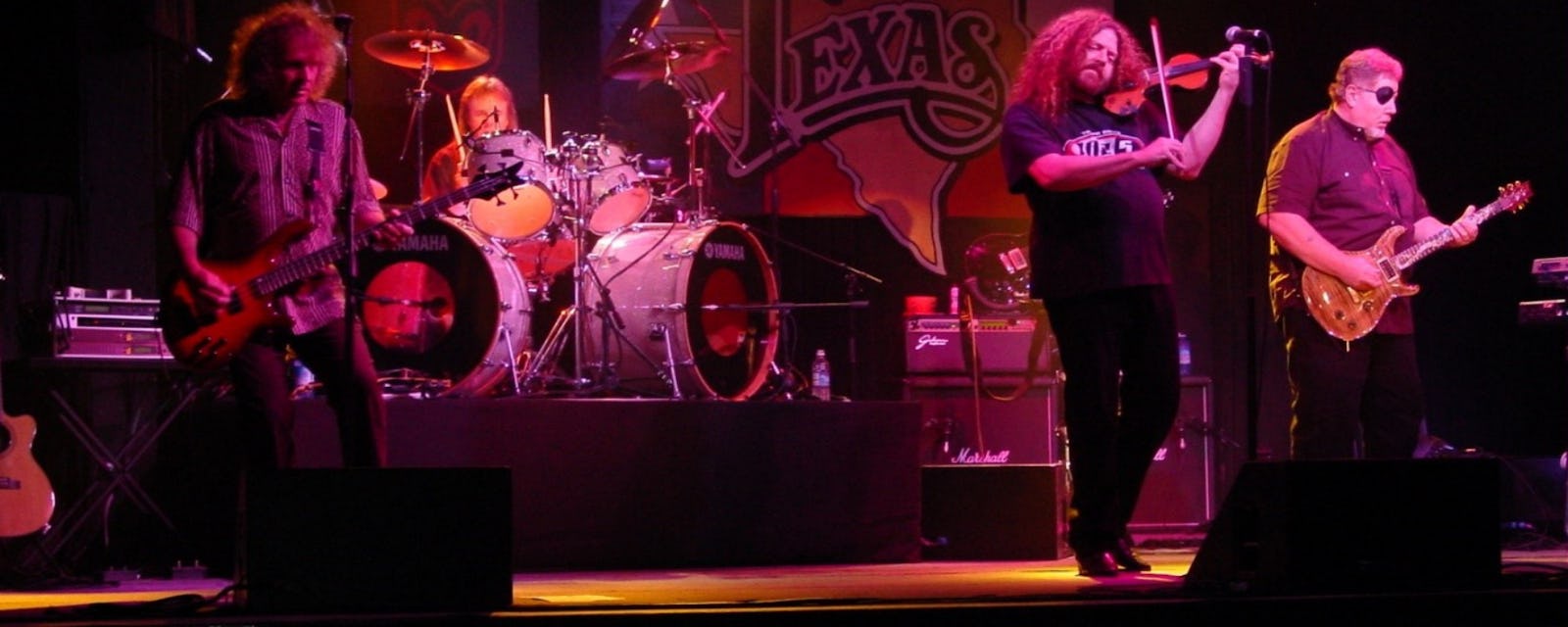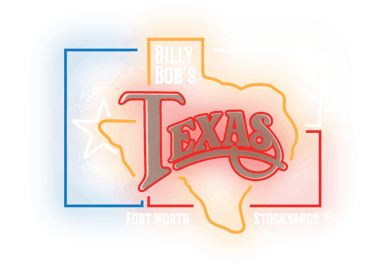
Kansas
HISTORY WITH BILLY BOB’S:
On Friday July 13, 2001, Kansas cemented all 5 of their band members hands onto the “Wall of Fame.”

ABOUT KANSAS:
Fusing the complexity of British prog-rock with an American heartland sound representative of their name, multi-platinum-selling Kansas is among the most popular bands of the late ’70s. Their singles during the period — “Dust in the Wind,” “Carry on Wayward Son,” and their cover of J.J. Cale’s “Bringing It Back” became staples of AOR radio and still receive airplay at classic rock radio. During the ’70s, the band sold tens of millions of records, and the commercial success of Leftoverture (1976), Point of Know Return (1977), and Monolith (1979) propelled them to superstar status and sold-out concerts across the U.S., Europe, South America, and Asia. While their popular fortunes diminished in the ’90s, they continued to record and tour. Despite key personnel changes — the departure of founding guitarist Kerry Livgren and the eventual retirement of lead vocalist Steve Walsh among them — the band continued to work across the globe and record regularly. The latter stopped for 15 years after 2000’s Somewhere to Elsewhere, a release that featured all the original members of Kansas, with all songs composed by Livgren. Kansas resumed recording with The Prelude Implicit in 2016, featuring new lead vocalist and keyboardist Ronnie Platt. It registered commanding spots on the charts of 14 countries, including the Billboard 200 and Top Rock Albums charts at home.
Formed in Topeka in 1970, the founding members of the group — guitarist Kerry Livgren, bassist Dave Hope, and drummer Phil Ehart — first played together while in high school; with the 1971 addition of classically trained violinist Robbie Steinhardt, they changed their name to White Clover, reverting back to the Kansas moniker for good upon the 1972 arrivals of vocalist/keyboardist Steve Walsh and guitarist Richard Williams. The group spent the early part of the decade touring relentlessly and struggling to gain recognition; initially, their mix of boogie and prog rock baffled club patrons, but in due time they established a strong enough following to win a record deal with the Kirshner label.
Kansas’ self-titled debut LP appeared in 1974; while only mildly successful, the group toured behind it tirelessly, and their fan base grew to the point that their third effort, 1975’s Masque, sold a quarter of a million copies. In 1976, Leftoverture truly catapulted Kansas to stardom. On the strength of the smash hit “Carry on Wayward Son,” the album reached the Top Five and sold over three million copies. Released in 1977, Point of Know Return was even more successful, spawning the monster hit “Dust in the Wind.” While the 1978 live LP Two for the Show struggled to break the Top 40, its studio follow-up, Monolith, the band’s first self-produced effort, reached the Top Ten. That same year, Walsh issued a solo record, Schemer-Dreamer.
In the wake of 1980’s Audio-Visions, Kansas began to splinter; both Hope and Livgren became born-again Christians, the latter issued the solo venture Seeds of Change, and their newfound spirituality caused divisions within the band’s ranks. Walsh soon quit to form a new band, Streets, and the remaining members forged on without him, tapping vocalist John Elefante as his replacement. The first Kansas LP without Walsh, 1982’s Vinyl Confessions, launched the hit “Play the Game Tonight,” but after only one more album, 1983’s Drastic Measures, they disbanded.
In 1986, however, Kansas re-formed around Ehart, Williams, and Walsh; adding the famed guitarist Steve Morse as well as bassist Billy Greer, the refurbished band debuted with the album Power, scoring a Top 20 hit with “All I Wanted.” When the follow-up, 1988’s In the Spirit of Things, failed to hit, seven years passed before the release of their next effort, Freaks of Nature. The London Symphony-assisted Always Never the Same followed in 1998, and in 2000 Kansas issued Somewhere to Elsewhere, their 14th studio album, which saw the return of founder singer/songwriter Kerry Livgren. The next decade found Kansas continuing to tour heavily and release compilations and live albums, culminating in their 2014 induction into the Kansas Hall of Fame and the Georgia Music Hall of Fame, which coincided with the group’s 40th anniversary. Miracles Out of Nowhere, a DVD/CD career retrospective, followed in early 2015. After signing with Century Media’s InsideOut label, Kansas released The Prelude Implicit in 2016. Their 15th studio effort overall, the prog-heavy LP also marked the band’s first new album in 16 years. The following year saw the release of Leftoverture Live & Beyond, a collection of concert performances culled from their 40th anniversary tour.
In March of 2020, Kansas released a three-and-a-half-minute video trailer hosted by Platt to announce the June release of Absence of Presence. Co-produced by drummer Phil Ehart, guitarist Rich Williams, and guitarist Zak Rizvi, it marked the studio debut of keyboardist Tom Brislin (Yes, Camel, Debbie Harry) who had come aboard in late 2018. After releasing three advance cuts — “Throwing Mountains”, “Memories Down the Line, and “Jets Overhead” — the album was delayed until July due to production delays.
Debut Date
September 15th, 1983
# of Appearances
4




